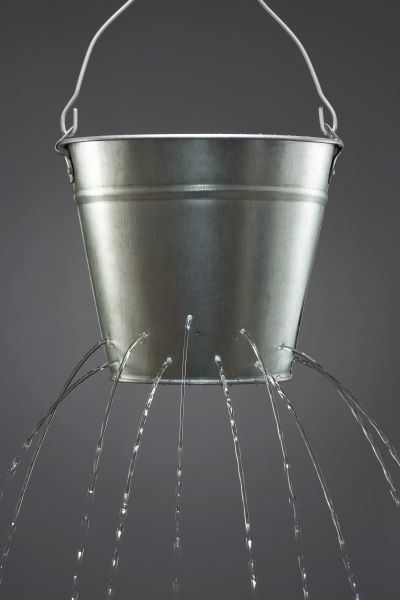No products in the cart.
Hollow Core vs Solid Core Door Soundproofing

24
Jan
Whether you’re building a new home or renovating an existing one, one thing is certain: you’re going to need doors. Lots of them. Between the front door, back door, bedrooms, bathrooms, closets and pantries there are often more than ten doors in just one house. With all of the doors in your home you’ll need to learn about door soundproofing depending on the type of door you have – hollow core or solid core.
Types of Doors for Soundproofing
When installing or replacing new doors, prices can add up fast. You’ll want to consider whether solid core or hollow core doors are the best fit for your needs so that you don’t end up spending unnecessary time and money. Unless you’re a professional builder or architect, you likely don’t know too much about doors, but not to worry. Keep reading to learn the pros and cons of both types of doors as well as how to easily check if a door is solid or hollow core.
Soundproof Hollow Core Doors
If you’re replacing a door or adding a new one to a closet, pantry or similar space, you probably want to go with a hollow core. Hollow core doors are light weight, but they’re not exactly hollow. Typically, they’re filled with a light material such as cardboard.
These types of doors are light weight, low cost, and easy to move and install.

Think of sound flaking, or sound leaking, around a door the same way water leaks through holes in a bucket. Although most of the bucket is in tact, and the holes are very small, all of the water will eventually be drained from the bucket. The same works for sound. You can have a very soundproof solid core door, but if there’s a big gap at the bottom, sound will travel through it.
Because of their light weight nature, these doors are not good at blocking out sound, making them best for spaces where noise is not an issue, like closets. Since they are very low-cost and easy to install, many people choose to use hollow core doors for bedrooms and bathrooms as well. Sound is not typically a huge problem for these rooms so hollow core doors will be fine, especially if you have a lot of doors to replace and don’t want to spend a fortune on expensive new doors and installations.
If noise becomes an issue in a room where you have already installed a hollow core door and you don’t want to deal with the hassle of replacing it, check out our sound-blocking panels for doors. This product is designed to hang over almost any door to help block sound. Whenever it’s in use, it can be sealed to the wall using velcro or magnets for extra door soundproofing performance. Then, when you don’t need it, it rolls up and stay in place with the attached straps.
With hollow core doors, you may even consider pairing the soundproofing door cover with a white noise machine, door sweeps, and door seals. The white noise machine will work to mask any sounds that the door cover may not be able to fully block. It helps raise the ambient noise level in a room so that sudden or distracting noises are not as noticeable as usual. Door sweeps and seals are used to close up any gaps around the perimeter of doors, since sound can flank, or leak, through these spaces.
Door Soundproofing Accessories:
Soundproof Solid Core Doors
For rooms where sound blocking is important, like a home office, recording studio or nursery, you may want to consider a solid core door. These doors are more expensive than their hollow core counterparts and are typically made from composite wood, making them extremely heavy. Due to their weight, you may need to hire someone to install them for you, further increasing costs.
Though they are more expensive, these doors work well to block out sound, and often have nicer finishes than hollow core doors. For extra sound blocking ability, you can still install a soundproof door panel to help with even more noise reduction. Or you can start by adding door sweeps and seals before investing in a soundproof door cover.
Are Solid Core Doors More Soundproof?
When considering the best interior doors for soundproofing, a solid core door is going to be the best bet. However, although they are more soundproof at the core, this means nothing if you’ve done nothing to combat sound flanking around the door. Yes, even with a solid core door, you should still consider other door soundproofing accessories – door sweeps, door seals, and even white noise machines.
What Kind of Door Do You Have?

When considering the types of doors to use in your home (hollow core door vs solid core door), be sure to consider the space the door will be separating. Closet doors and bathrooms doors definitely don’t need to be solid core, but the door to your bedroom or home office may need to be.
If you are replacing existing doors in your home and want to see if the ones you already have are solid or hollow core, follow these easy tips.
- Check the weight. Solid core doors are much heavier than hollow core ones and will therefore be more difficult to move. Swing the door open and shut a few times. If it swings easily, it is likely hollow core.
- Knock on it. If it sounds hollow, it probably is.
- Drill a small hole into the door to check the material in the center. Keep in mind this will damage the door and should only be done if you plan on removing it.
Door Soundproofing – Hollow Core vs Solid Core
Next time you need to install a new door, make sure to consider the differences between hollow and solid core in order to make the best choice for your renovation! Regardless, consider the following ways to soundproof a door, from using door sweeps to soundproofing door covers.
